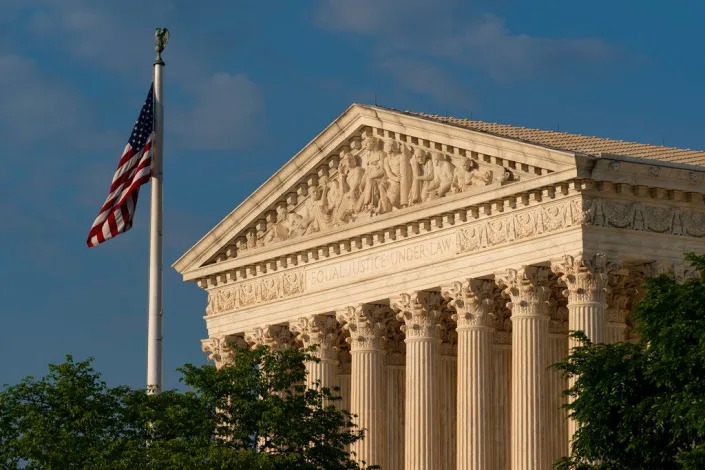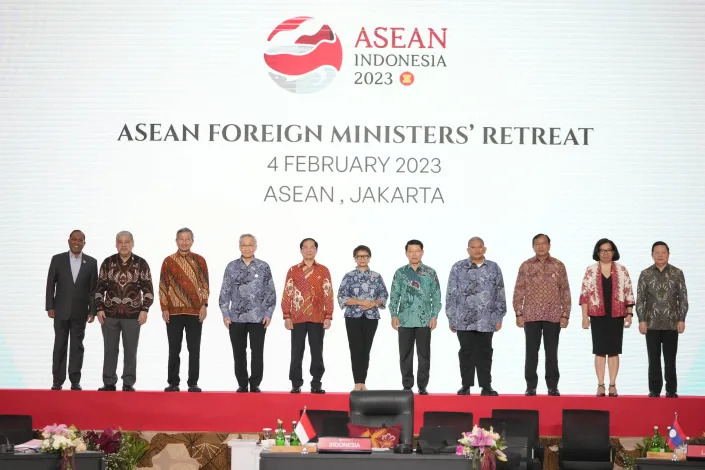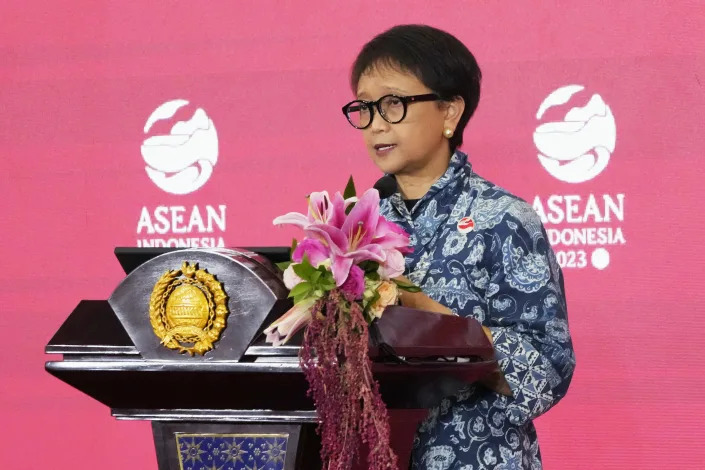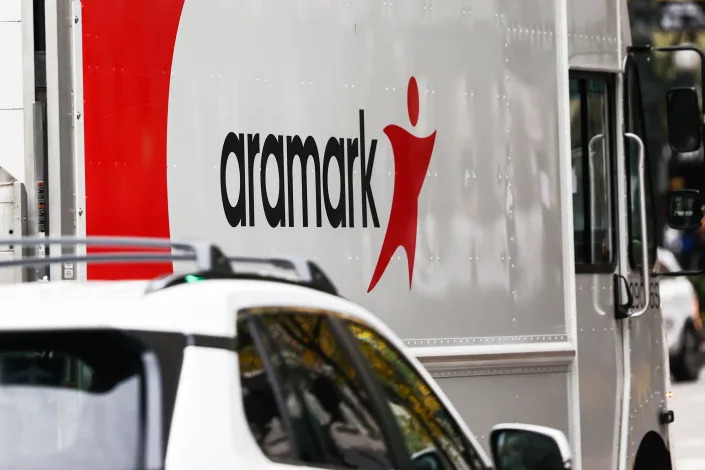Will high school athletes have to disclose their menstrual history? Where it stands now

sports@bradenton.com
Jeff Kleinman
Sat, February 4, 2023
Disclosing the menstrual history of Florida high school students may be required soon. It is now optional.
Here’s where things stand right now:
A meeting on the issue
▪ The Florida High School Athletic Association will discuss its proposal to require the disclosure of athletes’ menstrual history. The 16 board members will meet Feb. 26-27 in Gainesville.
What is the status right now?
▪ The athletic association’s Sports Medicine Advisory Committee met in January and adopted a new form that would make questions about menstruation mandatory rather than the way it is now: optional.
▪ The advisory board can change its recommendation.
▪ The athletic association board can accept or reject the advisory committee’s final positions.
What would the form say?
▪ If approved, a required form would ask students if they’ve had a menstrual cycle, and if so, at what age they had their first period, their most recent and “how many periods ... in the past 12 months.”
The pros?
▪ Dr. Thresia Gambon, president of the Florida Chapter of the American Academy of Pediatrics, says menstrual history can help doctors evaluate a student-athlete’s health, but that information should be kept confidential between the student and the provider.
The cons?
▪ Maxx Fenning, president of PRISM, a South Florida nonprofit organization that provides sexual health information to LGBTQ+ youth, says the proposal is an effort to stigmatize and exclude transgender people in sports.
‘Invasion of privacy’: Some Florida athletes leery of being made to reveal menstrual cycles
Clara-Sophia Daly
Sun, February 5, 2023
In the athletic trainer’s office at Miami Senior High are green Gatorade jugs, water bottles, anatomical posters, two massage tables — and years of private medical records of male and female high school athletes, stacked on a rack, stored in dusty, dog-eared cardboard crates labeled “bankers box.”
Included in what is collected and stored is information on female athletes’ menstrual cycles, from a series of “optional” questions on the Florida High School Athletic Association’s athletic physical form.
At least they have been optional questions until now.

Miami-Dade County Public Schools forms and FHSAA records from students at Miami Senior High School are stored inside the office of the athletic trainer at the school on Friday, Feb. 3, 2023, in Miami, Fla.
Last month, FHSAA’s sports advisory committee proposed making the formerly optional questions on menstrual cycles mandatory. Refusing to answer could conceivably jeopardize the ability to participate in sports.
READ MORE: Florida athletes may soon be required to submit their menstrual history to schools
The proposal involves adapting a form devised by the American Academy of Pediatrics and used in some other states. But with a critical difference: That form would have the detailed medical information stay in the custody of a student’s physician, while the proposal before the FHSAA would entrust this information, including menstrual cycles, to the schools.
Several female athletes interviewed by the Miami Herald were leery of the policy, wondering why schools need to collect and store such information. “I think it is kind of disturbing and an invasion of privacy,” said Ruby Robbins, a 16-year-old Miami Beach High volleyball player in her junior year who is also manager of the boys’ team.
The proposal, which is to be considered by the full FHSAA board Feb 27-28, has ignited a political furor at a time when the Supreme Court’s ruling overturning Roe v. Wade has moved women’s reproductive rights and bodily autonomy to the center of the political and cultural debate.
States like Florida have either clamped down on abortion access or are threatening to do so and some have indicated they want to seek ways to prevent pregnant women from traveling to other states for abortion services — without explaining how that can be accomplished without accessing women’s private medical histories. Could details on menstrual cycles, or the lack of one, normally the province of a patient and her doctor, be misused or weaponized? Who has access to the information?

The Miami Palmetto Senior High School Lady Panthers huddle before the start of their basketball game against the Miami Senior High School Lady Stings at Miami Senior High School on Friday, Feb. 3, 2023.
The optional questions on the current forms — typically filled out partly by a physician, partly by the athlete — have been asked for years, eliciting little notice. The section in question is labeled FEMALES ONLY on the existing questionnaire, although Mathias Costa, Miami Senior High athletic trainer, said boys have on occasion filled it out as a joke.
As he spoke, coaches and others sifted in and out of the room where the boxes and filing cabinets of private information are stored, stacked nearly to the ceiling. When the room is not in use, the door is locked.
Numerous efforts by the Miami Herald to reach the FHSAA for comment have been unsuccessful.
READ MORE: Here is what Florida female high school athletes may be required to report about their periods.
Friday after school at Miami Beach High, prompted by a Herald reporter, a softball player spoke to one of her teammates about the proposed new requirements. “I don’t think it’s their place to know what happens to me,” the softball player said.
“Why do they want to do it?” asked her friend.
“Because they’re transphobic,” the softball player responded.
“Oh, they could’ve just said that,” her friend said.
The Herald collected the names of all students interviewed for this article but in the case of teenagers is only publishing those whose parents agreed to their child’s name being published.
The culture war
LGBTQ rights advocates have indeed suggested the change is meant to fortify bans on transgender athletes participating in female events. Florida Gov. Ron DeSantis, whose eagerness to wade into culture war issues has cemented his conservative bona fides heading into the next presidential election cycle, has already signed legislation banning transgender athletes from girls’ sports at the high school and college level.
READ MORE: Ban on transgender athletes in girls’ and women’s scholastic sports is now Florida’s law
Infuriated by the victory of a transgender woman athlete in the NCAA 500-yard women’s freestyle swimming championship, DeSantis last year issued a proclamation declaring the runner-up, an athlete assigned female at birth from Sarasota, the “rightful winner” and accusing the NCAA of trying to “destroy” women’s sports. The proclamation carried no legal weight.
One way the old form differs from the new, yet-to-be-formally-adopted form is it asks students their “sex assigned at birth.” The old form just asks their sex.

The part of the form that deals with menstrual cycles and until now had been optional.
DeSantis doesn’t appoint FHSAA board members. It is a private, nonprofit organization empowered to govern the state’s interscholastic sports. But his handpicked education commissioner is involved in shaping its board. Members, ranging from athletic directors to superintendents and school board members, come from private and public schools, joined by citizen representatives, including former Florida State quarterback Charlie Ward.
The board consists of 14 men and two women, according to FHSAA’s website.
READ MORE: FHSAA board has final say on requiring athletes to submit menstrual history. How is group chosen?
Female athletes interviewed by the Herald wondered if the target of the policy change is transgender athletes, why are they the ones who have to divulge things they consider nobody else’s business?
Mallory McDonald, a Miami Beach High softball player who said she heard about the proposed change because her grandmother often sends her articles about things going on in the state, said: “Nobody should know if I’m on my period unless I tell them.”
Actually, the policy does not require ongoing tracking but only an assessment at the time of the physical, using a form that asks various health-related questions and is intended to show that there are no medical reasons a student cannot participate in athletics.
Carlos Parra, an ob-gyn who is in his last year of residency at New York University, said he can understand why knowing an athlete’s weight or height would be important, but that the questions related to female menstruation history seem more appropriate for a complete gynecological exam than a sports physical.
Although he is not an athlete and has not worked closely with high school athletics, he said he is not sure how information related to female menstruation would be medically important for school officials to know.
One doctor told the Palm Beach Post, which published an investigation of the proposed change, that irregular periods can be a signal of low bone density, which could place an athlete at greater risk of injury.
‘Makes me uncomfortable’
Sol Guerra is a high school soccer player from Miami Beach High and manages the softball team her friends, including McDonald, play on. She also rows outside of school. Guerra said she doesn’t even like to discuss such private matters with her mom. “It’s something I like to keep to myself,” she said.
Guerra said she knows having her period is nothing to be ashamed of, but at the same time, she would feel embarrassed if someone was to find out the schedule of her cycle.
Just having it with the school and knowing that anyone who wants to look can know when she starts and ends “makes me uncomfortable,” she said.
Her mother, Maria Smith, said she would stand behind her daughter’s choice to not disclose such personal information. “I will still do what my daughter thinks is comfortable regardless,” she said. “I think it’s ridiculous because it is an invasion of privacy,” she added.
Natasha Poulopoulos, a South Florida pediatric psychologist, said that forcing athletes to share information “related to their reproductive health, about intimate details about their bodies, could potentially be shaming. It could lead to feeling a sense of personal violation.”
“It’s sending the message that they don’t have a voice and they don’t have a choice. And that’s very detrimental to adolescent mental health,” she said.
Tara Llorente, an 18-year-old basketball player at Palmetto High, said that if given valid reasons why she had to fill out the information, she’d presumably understand it.

Miami Senior High School Athletic Trainer Mathias Costa.
Mathias Costa has been the head athletic trainer at Miami Senior High for the past 20 years. He is in charge of filing the forms that are filled out by student athletes, their parents, and their doctors. After seven years, Costa destroys the records, sometimes having students who volunteer their time shred the papers for him. He said on occasion coaches have asked to access the information but that such requests have been denied. The information is meant for training staff and medical personnel only.
Costa said a couple times in his career he has given the forms to the school principal when it was formally requested in a lawsuit and that he has mailed the form or dropped it off with athletic trainers at other high schools when an athlete transfers schools and the form is requested.
‘Not a big deal’
Sam Baumgarten is the girls basketball coach at Miami Senior High.
Baumgarten said he is less concerned about how forms are filled out and more concerned about basketball. But he did say he said he does not believe his athletes should be mandated to answer questions about menstruation.
Despite being uncomfortable with the questions, Miami Senior High School athlete Yuvia Rodriguez, 15, still filled out the form. The flag football player remembers sitting at the kitchen table and wondering why they were asking something so personal, but filling it out anyway.
“At the end of the day it’s just a menstrual cycle. It’s not a big deal,” she said.

Miami Senior High School freshman Yuvia Rodriguez, 15. Rodriguez is on the flag football team at her school.
Lisa Del Solar, who is on Miami Beach Senior High’s dance team the Sirens, is currently preparing to perform Beyonce’s song “Bigger” at an upcoming Black History Month pep rally. She also said she doesn’t see a reason for schools to require athletes to divulge this information.
“It’s an invasion of privacy and unnecessary,” Del Solar said.
Ruby Robbins, the Miami Beach High volleyball player, heard about the proposed requirements through a Miami Herald Instagram post her mother sent her and said she responded to her mom: “Girl, wtf that’s crazy!”
NOMINATE SOMEONE MAKING A DIFFERENCE IN YOUR SCHOOLS
‘It shouldn’t matter’
Cheerleading is not an official sport at Miami Beach High, although many consider it the equivalent because of the strenuous athleticism and acrobatics involved, including throwing squad members in the air and catching them. One cheerleader said she disagrees with the proposed requirement: “Why does it even matter? It shouldn’t matter!”
One of her friends told the Herald: “Sports are supposed to be available for everyone… It’s personal, it’s not something I would feel comfortable sharing.”
A 15-year-old freshman at Miami Beach who plays on the boys’ basketball team said of the proposed policy. “Hearing it is weird, I don’t know why they even ask that question. It just feels unnecessary.”

Miami Senior High School sophomore Amor Rodriguez, 15, is photographed outside of her school’s gym on Friday, Feb. 3, 2023. She’s on the flag football team.
Amor Rodriguez, a flag football player at Miami Senior High, first thought the questions could be a way for coaches to excuse female athletes from participation if they’re not feeling well, something she did not think would be a bad idea. But Rodriguez said that the question, in her estimation, should remain optional.
“If someone would be uncomfortable to put that on a form, I do not think it should be mandatory,” she said.






















